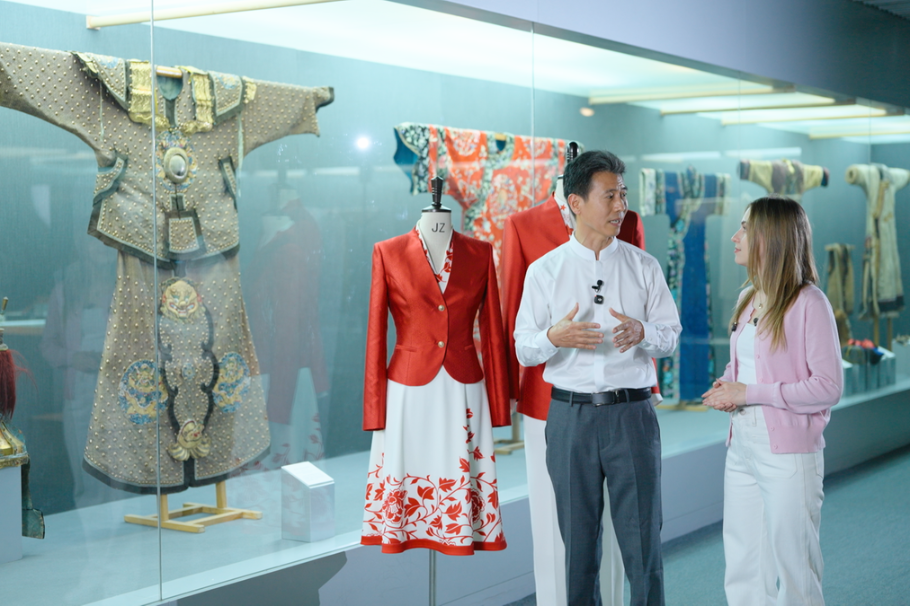These 'U-turn' stories show misuse of new media

Exercising self-discipline and waiting for details to unfold are best ways to avoid traps of creating victims with twisted truth
Any idea what a "U-turn" story is? According to the Chinese media, it refers especially to a one-sided story woven to defend one party in a conflict and blame the other only to be proved as fiction after a fair investigation into the incident in question, which prompts the public to make a U-turn.
In this age of new media, U-turn stories are becoming increasingly common, as anybody can tell his or her side of a story while blaming the other side.
One such example is an incident involving a tourist who called himself Lulu Love in Zhangjiakou, Hebei province. He complained on a social network micro blog recently that a local resident had blackmailed him into paying
4,500 yuan ($680; 570 euros; £525) for injuring his mule, even though he didn't as much as touch the animal.
The local resident at first was the subject of a barrage of online attacks. But public opinion shifted to his side once it became clear that Lulu Love and his friends kept riding their motorcycles around the mule for more than 20 minutes, causing physical injuries to the mule. The man had bought the mule for 10,000 yuan but was forced to sell it to a butcher for half that amount, and thus suffered a loss even after Lulu Love paid him compensation.
Another such incident took place in Beijing's Badaling Wildlife Park, where a tourist surnamed Chen told journalists that he was "unfairly treated" by the staff after he was bitten by a bear. The truth emerged later: He had opened his car window in the Malaysian bear garden and tried to feed the bears biscuits. In fact, some videos showed Chen escaped the bear attack because of help from the staff. He also admitted to having received some first aid from the staff and being advised to go to the hospital for further treatment. He complained simply because he was unhappy.
In both cases, the complainants were to blame for the incidents. But instead of apologizing for their actions, they rallied public support by posting made-up stories online. Had there not been fair media follow-ups or police investigations, the mule owner and the park employees might still be receiving verbal brickbats, suffering further damage to their reputation.
Such U-turn stories are particularly unfair to those not adept at using social media. The mule owner, for instance, is a senior citizen who does not have any micro blog account, which could have prompted Lulu Love to twist the incident in his favor. Unfortunately, no netizen bothered to find out the other side of the story.
Additionally, U-turn stories deal a heavy blow to public trust, because people who have faced flak for no fault of theirs will hesitate to voice support for those unfairly treated later. To prevent the propagation of U-turn stories, every social media user should learn to act rationally. Whenever a rather sensational story emerges, it is advisable to wait until all of the details unfold instead of jumping to a conclusion and scarring the innocent with invectives.
More important, law enforcers need to act and hold those people who fabricate stories accountable. Yet in neither of the above-mentioned cases did the rule breaker receive any punishment for his misdeed.
True, social media have opened channels where individuals can raise their grievances and voice their opinions on issues of their choice. But to ensure that the new social tools are not misused, it is important to exercise self-discipline.
The author is a writer with China Daily. zhangzhouxiang@chinadaily.com.cn
(China Daily Africa Weekly 09/01/2017 page13)
Today's Top News
- Shenzhou XX mission crew returns after debris delays landing
- China warns Japan of 'heavy price' for any military interference in Taiwan
- Japan will only suffer a crushing defeat should it dare to take a risk: Defense spokesperson
- Tokyo must stop playing with fire: Editorial flash
- China's Shenzhou XX crew en route back to Earth
- China's economy remains generally stable in Oct






























